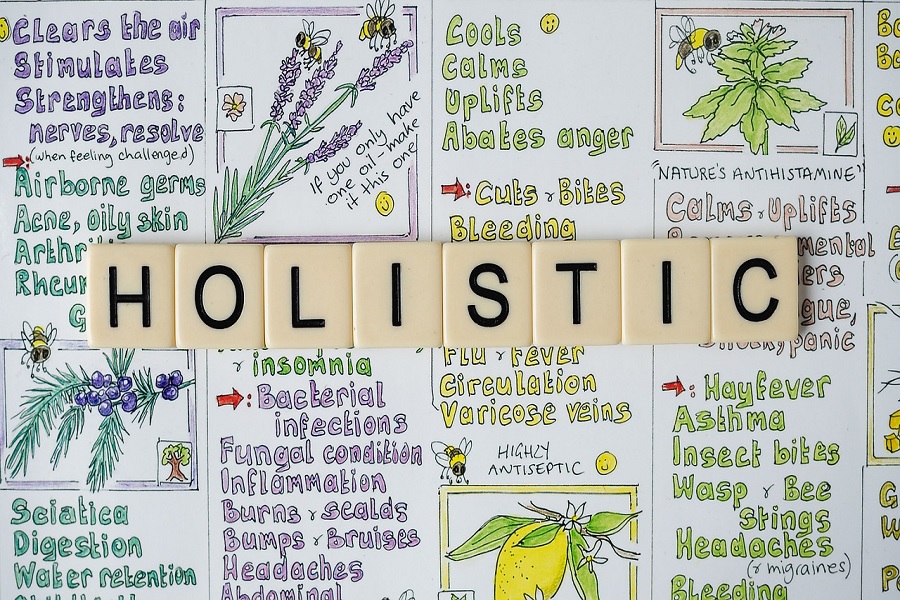
Follow us Now on Telegram ! Get daily 10 - 12 Interesting Updates. Join our Telegram Channel https://t.me/OhWomen
Download Telegram App before Joining the Channel
Achieving and maintaining good health involves more than just physical fitness; it requires a balanced approach that includes mental, emotional, and social well-being. A holistic approach to health focuses on treating the whole person, considering not only the body but also the mind and spirit. This integrated approach is essential for long-term wellness.
1. The Role of Nutrition in Holistic Health
Proper nutrition is a cornerstone of holistic health. A well-balanced diet provides the essential nutrients your body needs to function optimally. It also plays a significant role in mental clarity, mood regulation, and energy levels.
Key Nutrients for Holistic Health:
Omega-3 fatty acids (found in fish, flaxseeds) to support brain function.
Antioxidants (from berries, nuts, and leafy greens) for reducing inflammation and promoting skin health.
Vitamin D (from sunlight, fortified foods) to support bone health and immune function.
Eating a variety of whole foods—rich in fruits, vegetables, lean proteins, and healthy fats—can improve both physical and mental well-being.
2. Mental Health and Emotional Resilience
Mental health is just as important as physical health, and it often influences how we feel physically. Practicing mindfulness, meditation, and breathing exercises can help reduce stress, improve focus, and enhance emotional resilience.
Mental Health Tips:
Practice gratitude journaling: Writing down things you’re grateful for each day can boost your mood and decrease anxiety.
Incorporate mindfulness into your routine by paying attention to the present moment and embracing a non-judgmental attitude.
Talk therapy or counseling can be highly effective in processing emotions and managing stress.
3. Physical Fitness and Holistic Health
Regular physical activity is essential for overall health and well-being. Not only does it improve cardiovascular health, but it also releases endorphins that help manage stress, anxiety, and depression. It also strengthens the immune system, improves sleep, and boosts self-esteem.
Fitness Recommendations:
Aim for 150 minutes of moderate-intensity exercise per week.
Engage in strength training exercises twice a week to build muscle and bone density.
Include flexibility exercises like yoga or Pilates to improve joint health and reduce tension.
4. Sleep: The Essential Pillar of Health
Good quality sleep is vital for holistic well-being. Sleep is when your body repairs itself, consolidates memories, and replenishes energy stores. Chronic sleep deprivation can lead to mental health problems, weakened immunity, and other physical health issues.
Sleep Tips for Better Health:
Stick to a consistent sleep schedule by going to bed and waking up at the same time each day.
Create a sleep-friendly environment: keep your room dark, quiet, and cool.
Limit exposure to screens before bedtime as blue light can interfere with your body’s natural sleep cycle.
5. The Importance of Social Connections
Healthy relationships are integral to holistic health. Emotional support from friends, family, or social groups provides a strong foundation for managing stress, improving self-esteem, and maintaining mental health.
Ways to Foster Healthy Social Connections:
Join a community group or social club that aligns with your interests.
Make time for regular interactions with friends and family, even if it's just a phone call or video chat.
Volunteer in your community to build new connections while making a positive impact on others.
6. Self-Care and Personal Growth
Self-care is an essential part of a holistic approach to health. It encompasses activities that promote relaxation, self-reflection, and personal development. Practicing self-care helps to reduce stress and improve overall happiness.
Self-Care Practices:
Take regular breaks during your day to relax and recharge.
Set aside time for hobbies and activities that bring you joy and satisfaction.
Practice self-compassion by speaking kindly to yourself and recognizing your achievements.7. The Power of Nature
Spending time in nature is known to have numerous health benefits, including reducing stress, boosting mood, and improving cognitive function. Whether it’s a walk in the park, a hike in the mountains, or simply enjoying the outdoors, nature has a powerful influence on your health.
Ways to Connect with Nature:
Take daily walks outside, especially in natural environments.
Try eco-friendly activities like gardening or sustainable living practices.
Travel to natural destinations for vacations to rejuvenate and experience new, serene surroundings.
Source : Oh Women